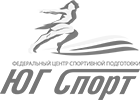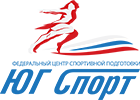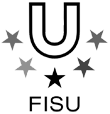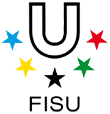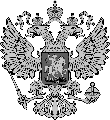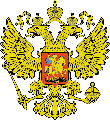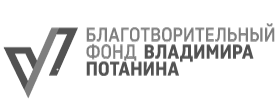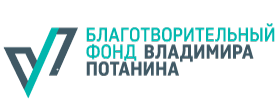Natalie Martins
Natalie Martins:
"Now Brazilians are not very excited about the Games, but they certainly will be once it all starts".
Natalie Martins from Brazil is a graduate of the inaugural class of the RIOU Master of Sport Administration programme. In 2014 this cohort of students had a unique opportunity to learn about the operations behind the Sochi Winter Olympic Games during an observation practice. Today Natalie is involved in analytical work for the 2016 Summ er Olympics in Rio de Janeiro.
- Can you tell us how the Brazilians are feeling now that the Olympic Games are getting closer? How much is the country influenced by the Games, and what kind of influence is that? What are people’s expectations? How is Brazilian sport changing in this context? In what spheres, other than sport, is the influence of the Games most visible?
People who are not involved in the Games I think don't care much of what is going on at the moment, I think the only thing that concerns them a bit is rather everything will be ready on time or not. In other words, they are only concerned with the image of their city. I don't really think people are very excited for the Games, but do think they will be once it starts. There are many things going on at the moment with politics and Rio is a city with many things to do, so until the Games start I don't think they will be the focus of most citizens here. However, many people have been attending the test events that have been happening now for the Games. As to Brazilian sports, being directly involved I can affirm that the Brazilian Olympic Committee (COB) is investing a lot in every sport, especially the ones with more chances of medals.
- Do the qualifications on your CV, including the RIOU diploma, look impressive to employers? How useful was the year in Sochi in terms of developing professional skills and opening up opportunities?
Another moment we are going through is of great unemployment in the country, so really apart from the OCOG I have not been applying for any other "official" job at the moment. I tried to apply for a job in the organizing committee from the day I came back to Rio, July 2014 to April 2015... Everyone think it's cool to have studied in Sochi, and being there did permit me to do some networking even with people from Rio 2016 here but it wasn't enough for me to get a job with the organizing committee. I really don't know why being very honest because I had a lot of good indications. It could have been because I wasn't so sure of what exact job I wanted in there.
- Can you tell us about the analysis conducted by Dartfish Brasil? How does it work? What patterns does it allow to reveal? How are the results used? What kinds of sport is it applied in, or can it be applied in any sport? Is it a new tool for Brazilian sport? Is it used widely, or was it introduced in connection with RIO 2016 specifically? Are there any peculiarities in applying the analysis to team sports vs. individual sports? You write that you work with physical trainers and physiotherapists, among other things. Doesit also involve using Dartfish software?
Dartfish is a video analysis software. It became more used with Brazilian sports with the investment in sports for our Olympics. The Brazilian Committee bought many licenses of the software and made it available for different sports. The technology area in the Brazilian Committee also uses other softwares, but Dartfish can be used in many different ways, for post analysis and live analysis. In gymnastic and archery for example it is more used during training, where the athlete can correct his movement by seeing himself on the monitor right after he has executed the movement. In beach volleyball and tennis it is used to scout and make statistics. In weightlifting it is used to correct the movement with post analysis by tracking the movement of the bar. It is also used in athletics, mountain bike, handball and some other sports. As you can see it can be used for different types of analysis so it can be used by both team sports or individual sports. With the physio I have been helping him to qualify some evaluation he does to observe knee angles. The evaluation was done just by looking and with the help of the software we can actually get the angles and have numbers. For the physical trainer he used it to get the time of fight and intervals in judo so that he can prepare his training according to the needs of his athletes. So, yes at the moment everything I do to the COB is involved with Dartfish as there I am considered the Dartfish specialist and that is what I will be doing during the Games for them.
- What knowledge, skills and experience gained in Sochi are now proving to be especially valuable in your work?
Mostly the experience I have had in Sochi during the Games will help me as I know how things work around the Olympic park during the Games. The job I am doing does not have a lot to do what in fact I have studied, but no doubt that being in RIOU opened my mind to Olympics as when I went there I was more focused in learning about sports marketing and business in order to open something here, really never expected to work with Olympic Sports before Sochi.
- Do you keep in touch with your fellow graduates?
I do speak with some classmates now and then, but not so often. I have met one that has visited me here and I do expect to see more of them around.
- Our traditional question: what wishes would you give to future RIOU students?
My wish to RIOU future students is that they take the most of what they can learn in the course and by the experience living in a different country and dealing with different cultures as all this adds up to their life. And hope they are very successful and happy in whatever path they choose to follow.

















































